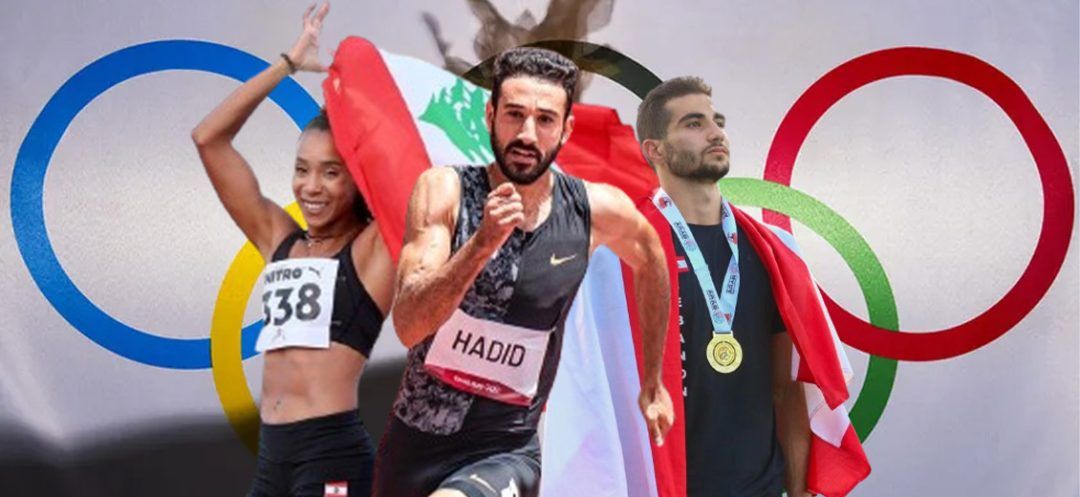
The situation unfolded with the arrest of Lebanese sprinter Noureddine Hadid, who had qualified to compete in the 100 meters but was detained by the Lebanese army for desertion.
In a dramatic turn of events, Lebanon's participation in the Paris 2024 Olympics has been overshadowed by controversy and administrative chaos, leaving the nation without a representative in track and field events.
Noureddine Hadid, a 31-year-old athlete and soldier, served 15 days in prison for deserting the army without proper resignation. This not only halted his Olympic journey but also cast a shadow over Lebanon's athletic representation.
In the absence of Hadid, the Lebanese Olympic Committee faced the difficult task of nominating a replacement. Initially, the spotlight fell on Aziza Sbeity, Lebanon's fastest woman in history. However, due to the federation's insistence on sending Hadid, the spot was reserved for a male athlete. With the deadline for naming a new athlete on July 7, Lebanon failed to meet it, leaving the nation in a precarious position.
On July 22, the Lebanese Olympic Committee released its list of athletes and delegations for the Paris 2024 Olympics. Surprisingly, the committee nominated Marc-Anthony Ibrahim, the national record holder in the 400m hurdles and 400m, despite Olympic regulations limiting wild card entries to the 100m, 800m, or marathon for nations without qualifiers. The Lebanese Athletics Federation quickly rejected the decision, banning Ibrahim's coach, George Assaf, and threatening to ban Ibrahim himself if he participated in the Games.
"I didn't understand banning George Assaf. I didn't understand why," Lebanese Olympic Committee President, Pierre Jalkh, told This is Beirut. "These are harsh and unathletic stances that should be justified by the federation," he added.
In an interview with This is Beirut, Roland Saadeh, President of the Lebanese Athletics Federation, reiterated that Hadid was the rightful qualifier and affirmed the federation's decision not to nominate a replacement.
Hadid, in an interview with This is Beirut, voiced his frustration: "The army didn't give me the okay to travel. Unfortunately, this is where the problem lies. I finished my sentence so I could travel by law. This is unfortunate, and I have a lot of questions about it. In the end, I'm going to represent Lebanon; why would I be rejected?"
Outrage and Criticism
The Lebanese Athletics Federation's decisions have sparked outrage and confusion within the sports community. The Federation suspended the participation of the Lebanese Army's sports club, banned Coach George Assaf from all activities, and refused to nominate any other athlete for the Olympics, effectively ending Lebanon's track and field hopes for Paris 2024.
Prominent athletes like Aziza Sbeity have voiced their dismay at the situation. In a Facebook post, Sbeity criticized the Federation's actions, emphasizing Coach Assaf's vital role in Lebanese athletics. "This federation's accolades would mean nothing without Coach George Assaf," she wrote, highlighting the "absurdity" of the ban.
Marc-Anthony Ibrahim, caught in the crossfire, expressed his bewilderment at the situation, revealing that he learned about his nomination from the media.
"I don’t understand why I was chosen as the final decision," he told This is Beirut, highlighting the lack of communication and clarity from both the Federation and the Olympic Committee. "Why is my coach banned for no reason?" Ibrahim asked.
Mismanagement and Systemic Failure
In a surprising turn of events, on July 27, the Lebanese Athletics Federation reversed its decision, reinstating the Lebanese Army's athletics club. However, with the deadline for athlete selection long passed, Lebanon's participation in the track and field events at the Olympics remains in jeopardy.
This situation underscores a broader issue within Lebanese sports, where mismanagement and lack of organization have left athletes feeling unsupported and disheartened. As Aziza Sbeity poignantly stated, "I take full responsibility when I say that the system has failed me time and time again."
Although Lebanon's chances of winning an Olympic medal in track and field are slim, its participation was important for the federation, the Lebanese sports community, and especially for the athletes.
Ultimately, Lebanon's loss in this situation is not just a missed opportunity at the Olympics but a reflection of a systemic failure to support and nurture its athletes. The country's sporting community, left in disarray, must now reflect on these events and seek a path forward that prioritizes the well-being and success of its athletes.
Read more





Comments